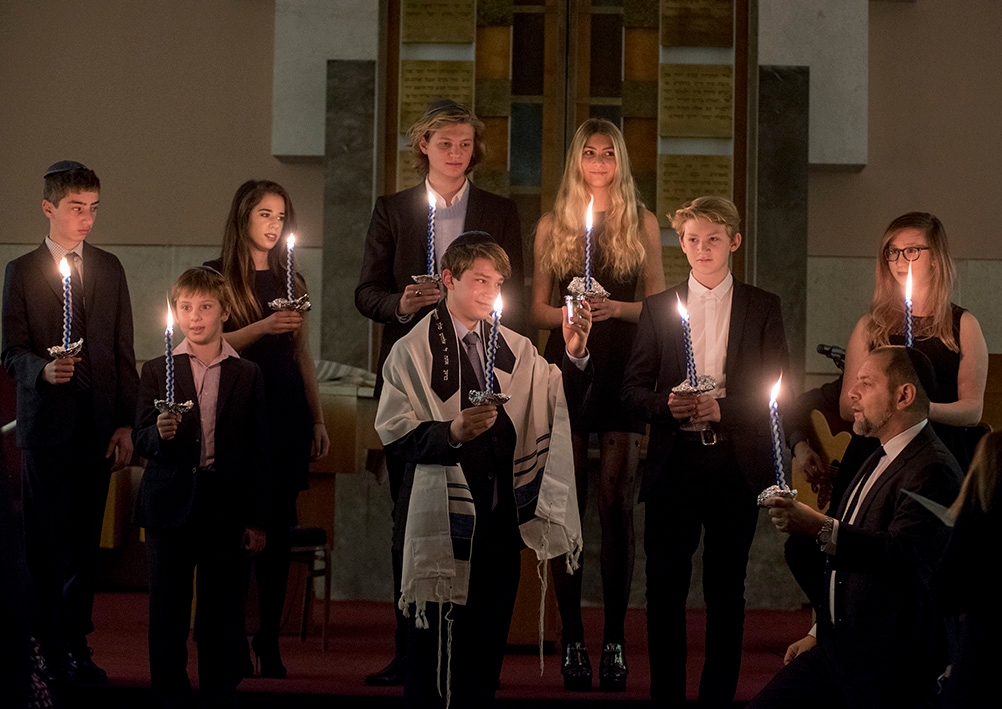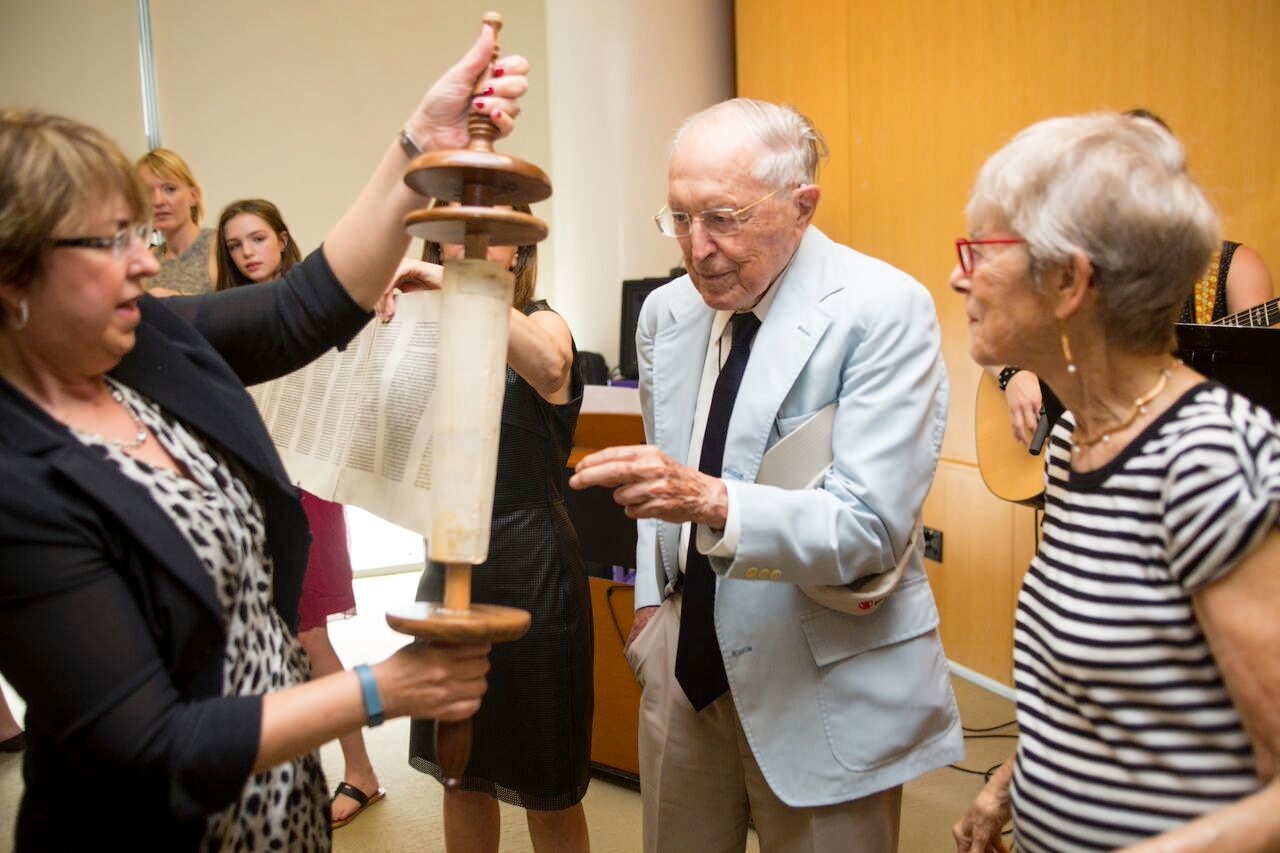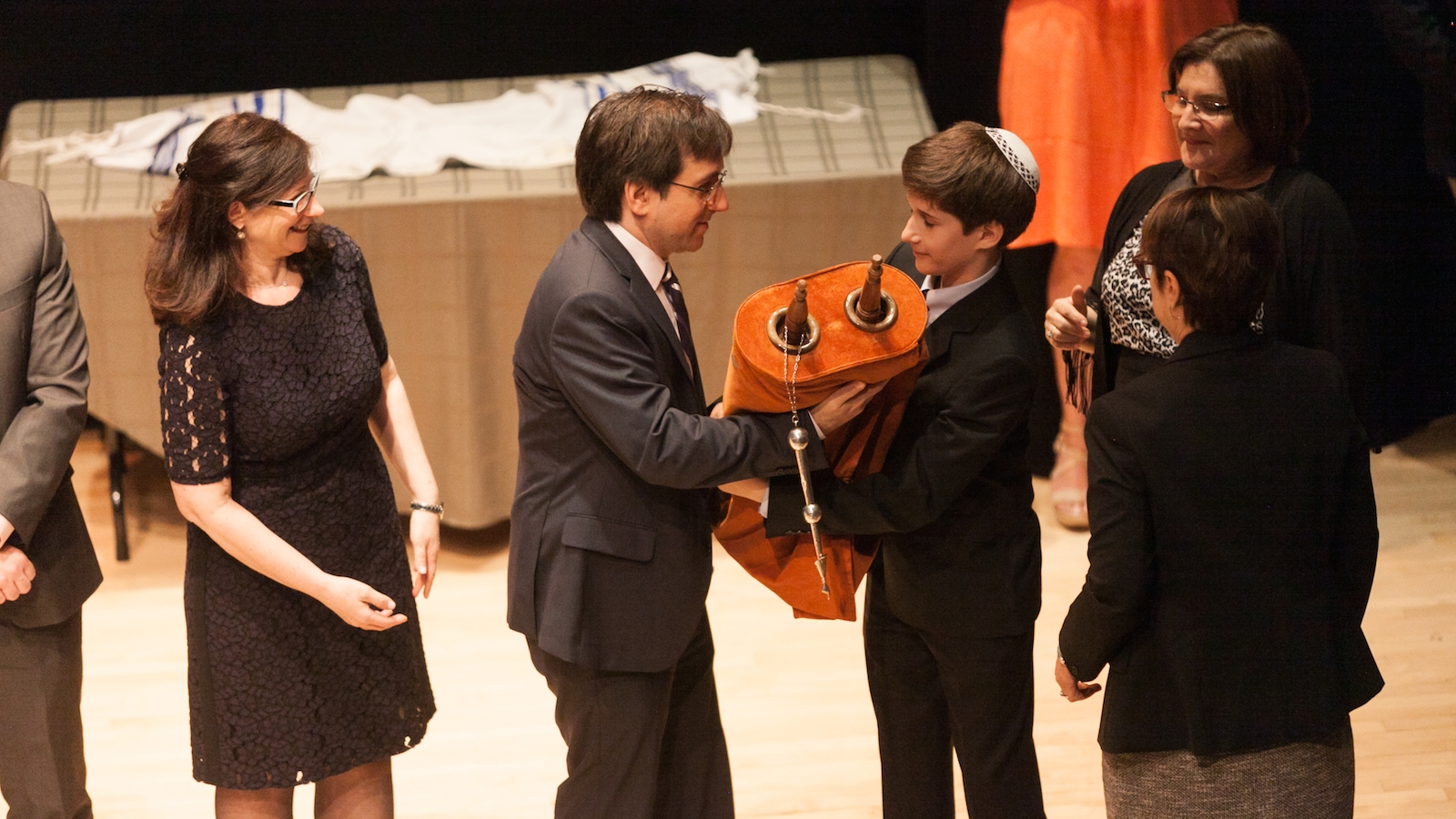Belonging to a synagogue and attending Hebrew school are not prerequisites for celebrating a bar or . And we don’t just mean having a fun party. Here are some guidelines for planning a meaningful coming-of-age event with ritual and educational components for families without strong ties to the organized Jewish community. Did we miss something? Let us know about interesting programs by emailing community@myjewishlearning.com
Think About Content
Your child becomes a bar/bat mitzvah simply by turning 13 (or 12, in some communities). There are no particular ritual obligations, and though chanting Torah or is customary, it may not be the best choice for your family. Bar/bat mitzvah youngsters can learn to lead a service, for instance. They can complete a course of study and teach on a Jewish topic that is meaningful to them. They can present some other personalized capstone project—perhaps something artistically creative—related to Jewish learning or action. Or they may have another idea altogether.
Find a Tutor

In most North American cities, it is possible to hire a freelance rabbi or educator to prepare your child for a bar/bat mitzvah. Some tutors offer crash courses in Hebrew reading and cantillation, which would be appropriate if your child seeks a leadership role at a prayer service. Some may help plan and officiate at a bar/bat service, others teach more of an intro to Judaism course, while still others like to explore a particular area of , often choosing a topic that matches the bar/bat mitzvah child’s interests. Many tutors will help your child prepare a speech or project to reflect their learning.

Help us keep Jewish knowledge accessible to millions of people around the world.
Your donation to My Jewish Learning fuels endless journeys of Jewish discovery. With your help, My Jewish Learning can continue to provide nonstop opportunities for learning, connection and growth.
Try searching the Internet to find tutors in your community, though be sure to check references and seek word-of-mouth recommendations as well.
Think About Timing
If you choose to organize a prayer service and you want your child to read from the Torah, consider services at various times during the week. Saturday morning liturgy—while customary for bar/bat mitzvahs—can be lengthy and dense. Morning services on Mondays or Thursdays are more compact, and still include Torah reading. Similarly, the afternoon service (Mincha) on is becoming increasingly popular for bar/bat mitzvahs. It is concise, includes Torah reading, and can segue nicely into a Saturday night party. Rosh Chodesh morning services also include Torah reading. Check the Jewish calendar to find out when Rosh Chodesh falls each month.
Some Resources & Inspiration

B-Mitzvah (formerly called Brit Atid), a project of the JCC in Manhattan’s Jewish Journeys program in New York City, brings together a cohort of seventh graders who come together for monthly study parent-child study sessions. Each child also has monthly one-on-one sessions with a Jewish educator in which he or she studies the Torah portion corresponding to his or her Hebrew birth date and develops a creative way of presenting it. The program culminates in a group ceremony where each child presents his or her Torah portion. Read about one family’s Brit Atid experience.
Raising The Bar, a project of New York City’s Lab/Shul, works with families both within and outside synagogues, to create unique and theatrical bar/bat mitzvahs. Families who participate in Raising the Bar spend several months studying Torah texts and commentaries and thinking about creative, engaging ways to present the materials, often including music, video, and performance. Some Storahtelling bar/bat mitzvahs include chanting Torah and haftarah portions, while others dispense with the Hebrew entirely. Raising the Bar has had cohorts all around the world, convening study communities in large American cities, as well as the UK and Israel. They have also made a few attempts to work with families in remote locations, most recently in Alaska. So they might be able to improvise a program for your needs, as well.
Another interesting approach is that of Boulder, Colorado’s Adventure Rabbi program, which calls itself a “synagogue without walls.” Adventure Rabbi offers a variety of unconventional programs, usually with an outdoorsy twist, and they offer a few different bar/bat mitzvah tracks. They work with students long-distance via Skype, and officiants are willing to perform bar or bat mitzvahs in a child’s hometown, or even travel to a destination ceremony.
Bar/Bat Mitzvah on the Go
A meaningful family trip is another way families choose to mark a bar/bat mitzvah, either in lieu of a synagogue service or in addition to one. Israel is a traditional destination, and there is a host of resources available for families planning a bar/bat mitzvah trip to Israel. Families of children who were adopted internationally sometimes choose to travel to their child’s country of birth around the time of his or her bar/bat mitzvah.
The Trickle-Down Effect
While most of these bar/bat mitzvah innovations are taking place outside of establishment Jewish communities, even within some synagogues families and clergy are experimenting with new ways to celebrate, based on a growing sense that the traditional bar/bat mitzvah can feel rote and impersonal. In 2012 the Union for Reform Judaism launched the “B’nai Mitzvah Revolution,” with the goals of creating more engaging ways to mark a bar or bat mitzvah for the youngster and his or her family.



